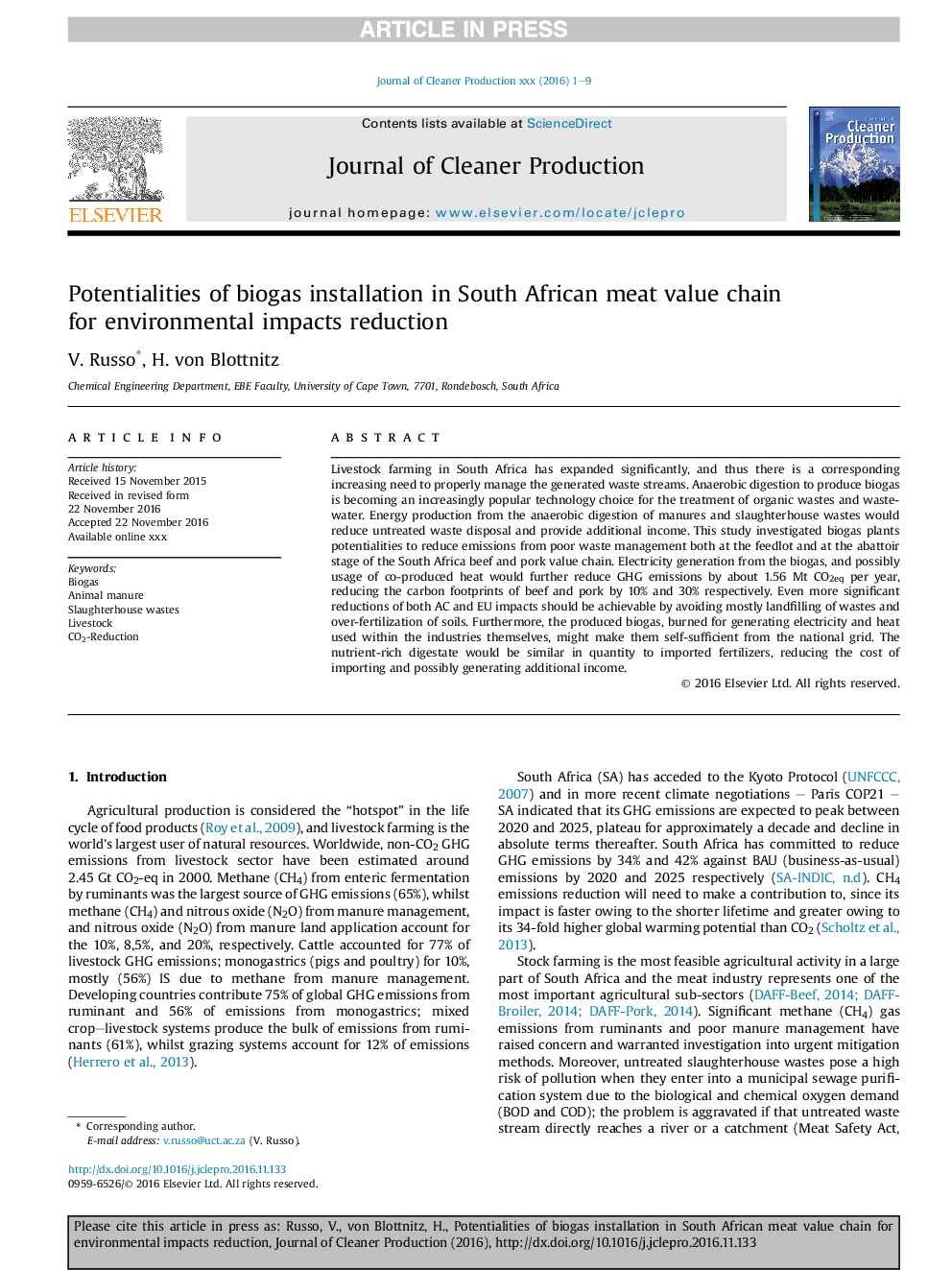| Article ID | Journal | Published Year | Pages | File Type |
|---|---|---|---|---|
| 5479657 | Journal of Cleaner Production | 2017 | 9 Pages |
Abstract
Livestock farming in South Africa has expanded significantly, and thus there is a corresponding increasing need to properly manage the generated waste streams. Anaerobic digestion to produce biogas is becoming an increasingly popular technology choice for the treatment of organic wastes and wastewater. Energy production from the anaerobic digestion of manures and slaughterhouse wastes would reduce untreated waste disposal and provide additional income. This study investigated biogas plants potentialities to reduce emissions from poor waste management both at the feedlot and at the abattoir stage of the South Africa beef and pork value chain. Electricity generation from the biogas, and possibly usage of co-produced heat would further reduce GHG emissions by about 1.56Â Mt CO2eq per year, reducing the carbon footprints of beef and pork by 10% and 30% respectively. Even more significant reductions of both AC and EU impacts should be achievable by avoiding mostly landfilling of wastes and over-fertilization of soils. Furthermore, the produced biogas, burned for generating electricity and heat used within the industries themselves, might make them self-sufficient from the national grid. The nutrient-rich digestate would be similar in quantity to imported fertilizers, reducing the cost of importing and possibly generating additional income.
Related Topics
Physical Sciences and Engineering
Energy
Renewable Energy, Sustainability and the Environment
Authors
V. Russo, H. von Blottnitz,
